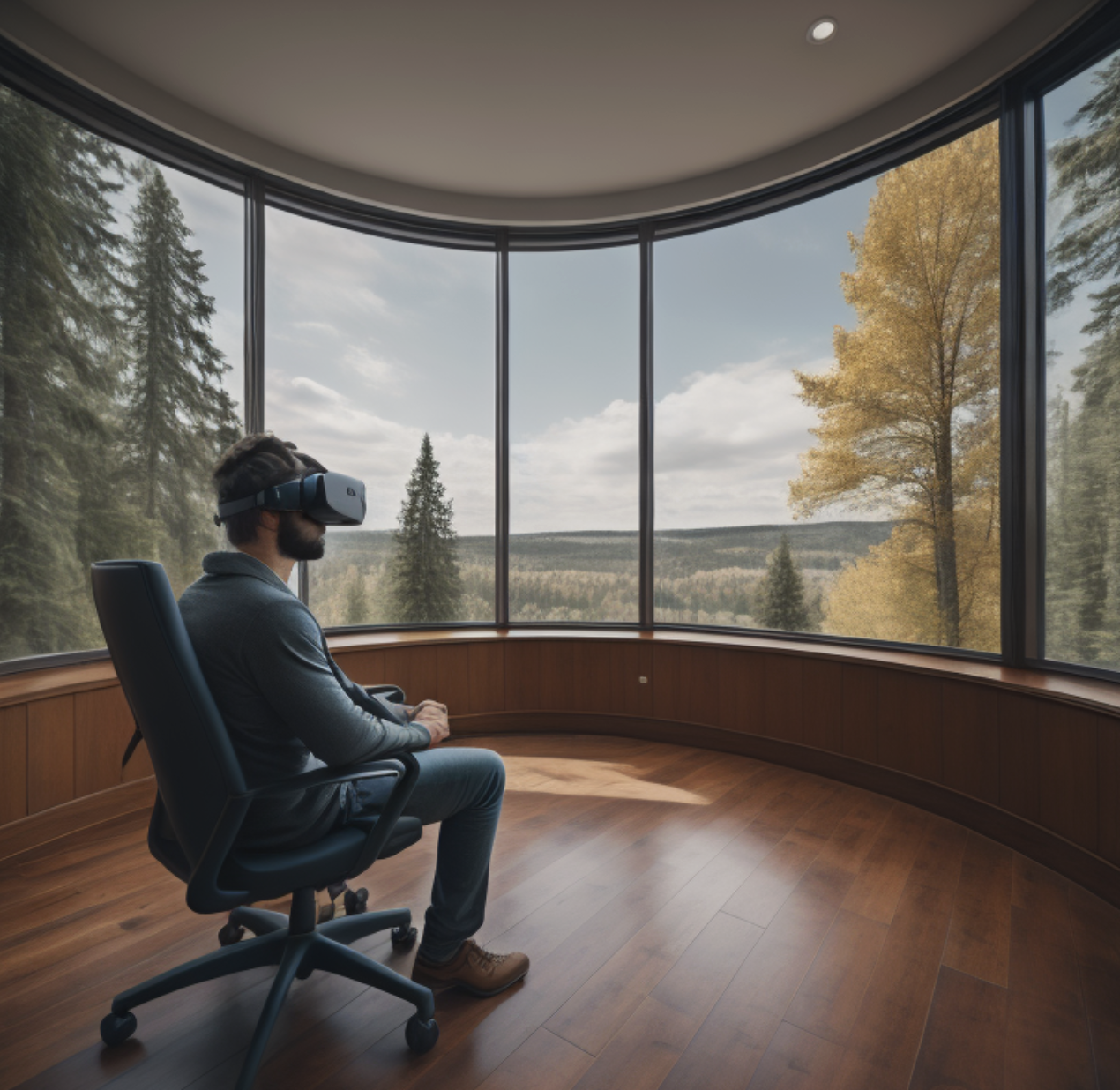Breaking Barriers: Conquering Phobias through Virtual/ Augmented Reality and 8D Sound
Introduction: Phobias can be debilitating, hindering individuals from leading a fulfilling and unrestricted life. The fear associated with phobias...

In the realm of technology, the quest to create immersive experiences has been ceaseless. From virtual reality (VR) to augmented reality (AR), the focus has always been on enhancing the human senses to transport individuals to new dimensions. However, the emergence of Artificial Intelligence (AI) has revolutionized this pursuit, offering groundbreaking ways to amplify immersion by leveraging our senses in unprecedented ways.
AI's role in enhancing sensory experiences spans across various domains, from entertainment to healthcare and beyond. Through the amalgamation of machine learning algorithms, advanced sensors, and sophisticated data processing techniques, AI is transforming how we perceive and interact with the world around us.
Vision is perhaps the most extensively explored sense in the realm of immersive technologies. AI-driven algorithms enable realistic rendering and image processing, creating visually stunning environments in VR and AR applications. Deep learning models, particularly Generative Adversarial Networks (GANs), have revolutionized image synthesis, allowing for the creation of lifelike visuals indistinguishable from reality.
One notable application of AI in visual immersion is in the gaming industry. Game developers utilize AI algorithms to generate dynamic environments, lifelike characters, and realistic animations, elevating the gaming experience to new heights. Furthermore, AI-powered computer vision enables real-time object recognition and tracking, enhancing AR applications by seamlessly integrating virtual elements into the physical world.
Sound plays a pivotal role in creating immersive experiences, whether in gaming, virtual simulations, or entertainment media. AI-powered audio synthesis techniques, such as neural audio rendering and spatial sound processing, enable the creation of dynamic and realistic soundscapes tailored to individual preferences.
With AI, sound designers can generate personalized audio experiences that adapt in real-time to user interactions and environmental changes. Moreover, natural language processing (NLP) algorithms empower virtual assistants and chatbots to engage users through lifelike conversational interfaces, further enhancing immersion through auditory interactions.
The sense of touch adds a layer of realism crucial for complete immersion in virtual environments. AI-driven haptic feedback systems simulate tactile sensations, allowing users to feel textures, forces, and vibrations within VR experiences. By integrating machine learning algorithms with haptic devices, developers can create highly responsive and lifelike interactions, enhancing the sense of presence and immersion.
Beyond haptic feedback, AI holds promise in enabling advanced tactile interactions, such as simulating temperature, pressure, and even pain sensations. Researchers are exploring AI-driven approaches to mimic the complexities of human touch, paving the way for more immersive virtual experiences with enhanced sensory realism.
While vision, hearing, and touch have been the primary focus of AI-driven immersion, researchers are also delving into the realms of taste and smell. By combining machine learning algorithms with sensor technologies, scientists aim to simulate gustatory and olfactory sensations in virtual environments, offering a truly multisensory immersive experience.
Although challenges remain in replicating taste and smell with the same fidelity as other senses, advancements in AI-driven sensor technologies show promising developments. From virtual cooking simulations to immersive storytelling experiences, the integration of taste and smell into AI-enhanced environments opens exciting possibilities for future immersive technologies.
As AI continues to push the boundaries of sensory immersion, ethical considerations surrounding privacy, consent, and psychological well-being become increasingly important. The collection and analysis of sensory data raise concerns regarding user privacy and data security, necessitating robust frameworks for ethical AI development and deployment.
Moreover, the potential impact of hyper-realistic immersive experiences on mental health and social dynamics requires careful examination. While immersive technologies offer unparalleled opportunities for entertainment, education, and therapeutic interventions, they also pose risks of addiction, desensitization, and disconnection from reality.
In conclusion, the science of immersion propelled by AI holds immense promise for transforming how we perceive and interact with the world. By enhancing our senses through advanced algorithms and sensor technologies, AI enables unprecedented levels of realism and engagement in virtual environments. However, as we venture further into the realm of immersive experiences, it is crucial to navigate ethical considerations and societal implications to ensure that AI-driven immersion remains a force for positive change in the way we experience the world around us.
About VRenity
VRenity is at the forefront of transformative therapeutic technology, crafting immersive experiences that envelop the senses and foster tranquility. Our innovative solutions are set to revolutionize the way individuals engage with mental wellness, utilizing the latest in audio and visual technology across popular VR platforms. Prepare for a new dimension in wellness, where serene soundscapes meet dreamlike visuals, all within the reach of your VR headset.
Image by Freepik

Introduction: Phobias can be debilitating, hindering individuals from leading a fulfilling and unrestricted life. The fear associated with phobias...

In the ever-evolving landscape of technology, two transformative forces are converging to create a future that transcends our current understanding...

Introduction In the world of science fiction, the Star Trek holodeck has long captured our imaginations as the ultimate immersive virtual reality...